Report
Nov 20 2023
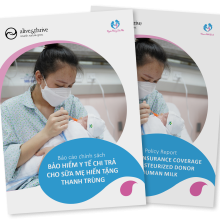
Policy Report - Health Insurance Coverage for Pasteurized Donor Human Milk
Brief
May 29 2023
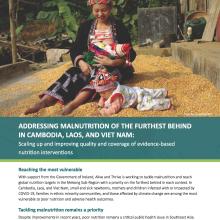
Addressing malnutrition of the furthest behind in Cambodia, Laos, and Viet Nam
With support from the Government of Ireland, Alive & Thrive is working to tackle malnutrition and reach global nutrition targets in the Mekong Sub-Region with a priority on the furthest behind in each context.
Brief
Sep 09 2021
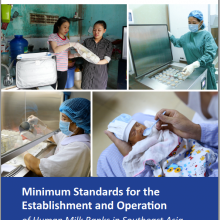
Minimum Standards for the Establishment and Operation of Human Milk Banks in Southeast Asia
Human milk bank services are an essential component of a breastfeeding-friendly health system. Such services give small and sick babies access to the multiple benefits of breastmilk by providing safe donor human milk.
Brief, Handout
Oct 28 2020
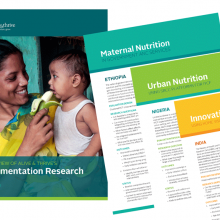
An overview of Alive & Thrive's implementation research
Alive & Thrive's implementation research spans its program areas, seeking to answer "how" to implement effective interventions and policies. Active studies are detailed in the attached documents.
Brief
Feb 01 2019
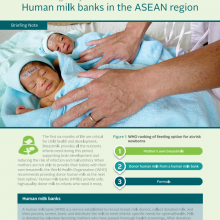
Briefing note: Ensuring every infant has access to breastmilk: Human milk banks in the ASEAN region
The first six months of life are critical for child health and development. Breastmilk provides all the nutrients infants need during this period, supporting brain development and reducing the risk of infection and malnutrition.
Report
Apr 30 2016
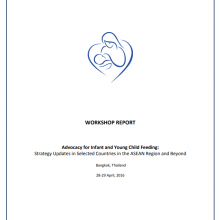
Advocacy for infant and young child feeding: Strategy updates in selected countries in the ASEAN region and beyond
Strategic and well-coordinated advocacy is essential to improve nutrition at scale. Recent efforts in countries throughout Southeast Asia have generated regional momentum and resulted in stronger nutrition policies and programs.

